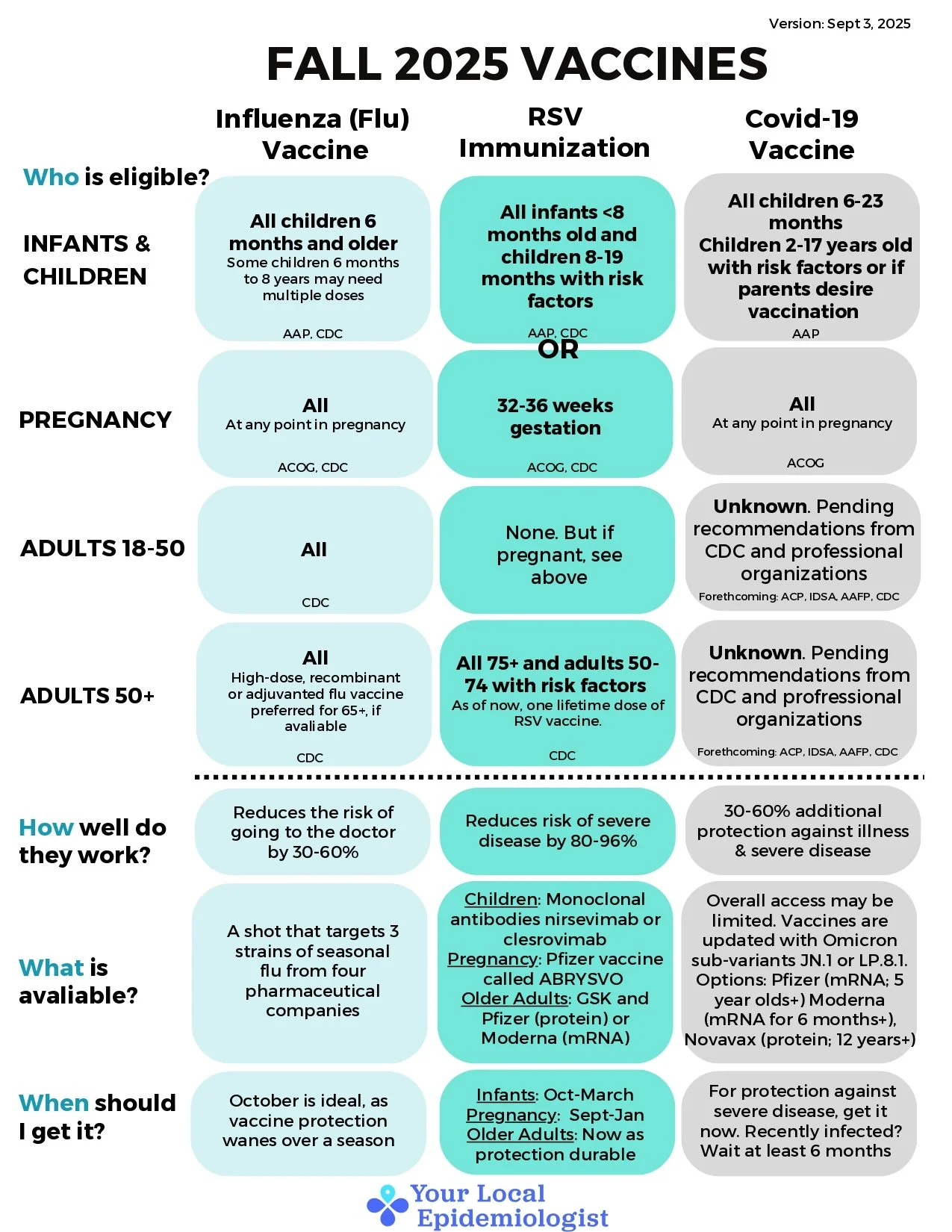Respiratory Virus Season Update: What Granite Staters Need to Know
As we turn the calendar to fall, respiratory virus season is just around the corner. Here in New Hampshire, influenza is not a reportable illness, but state health officials track “influenza-like illness” from early October through mid-May. While the monitoring period has not yet begun this year, we want to share the latest information on flu, COVID-19, RSV, and other respiratory illnesses to help Granite Staters prepare.
Current Activity Levels
Based on emergency department data in New Hampshire, COVID-19 activity remains low but is increasing. Flu and RSV levels are currently very low and stable. For now, there have been no confirmed cases of measles in the state. You can explore national surveillance data on respiratory illnesses through the CDC’s Your Community Snapshot here.
Vaccines and Protection
Vaccination remains one of the strongest tools we have to protect ourselves and our communities. Updated guidance for fall 2025 recommends:
Flu vaccines: Available for all children 6 months and older, adults 18–50, and especially recommended for adults 65+ with a high-dose, recombinant, or adjuvanted flu vaccine if available. October is the ideal time to get vaccinated, as protection can wane later in the season.
COVID-19 vaccines: Updated vaccines targeting Omicron subvariants (JN.1 or LP.8.1) are available from Pfizer, Moderna, and Novavax, depending on age. Protection reduces the risk of severe disease by 80–96%. Talk with your local health care provider or pharmacy about vaccine eligibility and availability.
RSV protection: Now available for infants, pregnant people, and older adults. Infants can receive monoclonal antibody treatments from October through March; pregnant people may be eligible for Pfizer’s ABRYSVO vaccine during September through January; and older adults can receive GSK, Pfizer, or Moderna vaccines depending on eligibility.
Taking Action
The NHPHA encourages all Granite Staters to:
Check with your insurance provider to confirm immunization coverage.
Talk with your local health care provider or pharmacy about vaccine eligibility and availability.
Stay informed about local illness levels as the season progresses.
By staying up to date on vaccines and monitoring respiratory illness activity, we can reduce the spread of disease and protect our communities—especially those most vulnerable to severe illness.


